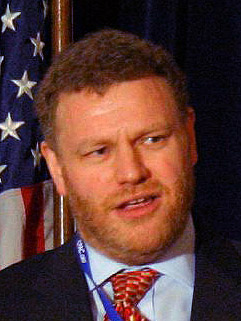Exploring old books in Project Gutenberg, I discover that Ontario textbooks all used to contain this frontispiece:
And here is a comprehensive set of suggested debate topics from the US in 1889,
THEMES FOR DEBATE.
Which is the better for this nation, high or low import tariffs?
Is assassination ever justifiable?
Was England justifiable in interfering between Egypt and the Soudan rebels?
Is the production of great works of literature favored by the conditions of modern civilized life?
Is it politic to place restrictions upon the immigration of the Chinese to the United States?
Will coal always constitute the main source of artificial heat?
Has the experiment of universal suffrage proven a success? Was Grant or Lee the greater general?
Is an income-tax commendable?
Ought the national banking system to be abolished?
Should the government lease to stockgrowers any portion of the public domain?
Is it advisable longer to attempt to maintain both a gold and silver standard of coinage?
Which is the more important to the student, physical science or mathematics?
Is the study of current politics a duty?
Which was the more influential congressman, Blaine or Garfield?
Which gives rise to more objectionable idioms and localisms of language, New England or the West?
Was the purchase of Alaska by this government wise?
Which is the more important as a continent, Africa or South America?
Should the government interfere to stop the spread of contagious diseases among cattle?
Was Caesar or Hannibal the more able general?
Is the study of ancient or modern history the more important to the student?
Should aliens be allowed to acquire property in this country?
Should aliens be allowed to own real estate in this country? Do the benefits of the signal service justify its costs?
Should usury laws be abolished?
Should all laws for the collection of debt be abolished?
Is labor entitled to more remuneration than it receives?
Should the continuance of militia organizations by the several States be encouraged?
Is an untarnished reputation of more importance to a woman than to a man?
Does home life promote the growth of selfishness?
Are mineral veins aqueous or igneous in origin?
Is the theory of evolution tenable?
Was Rome justifiable in annihilating Carthage as a nation?
Which has left the more permanent impress upon mankind, Greece or Rome?
Which was the greater thinker, Emerson or Bacon?
Which is the more important as a branch of education, mineralogy or astronomy?
Is there any improvement in the quality of the literature of to-day over that of last century?
Should the "Spoils System" be continued in American politics?
Should the co-education of the sexes be encouraged?
Which should be the more encouraged, novelists or dramatists?
Will the African and Caucasian races ever be amalgamated in the United States?
Should the military or the interior department have charge over the Indians in the United States?
Which is of more benefit to his race, the inventor or the explorer?
Is history or philosophy the better exercise for the mind?
Can any effectual provision be made by the State against "hard times"?
Which is of the more benefit to society, journalism or the law?
Which was the greater general, Napoleon or Wellington?
Should the volume of greenback money be increased?
Should the volume of national bank circulation be increased?
Should the railroads be under the direct control of the government?
Is the doctrine of "State rights" to be commended?
Is the "Monroe doctrine" to be commended and upheld?
Is the pursuit of politics an honorable avocation?
Which is of the greater importance, the college or the university?
Does the study of physical science militate against religious belief?
Should "landlordism" in Ireland be supplanted by home rule?
Is life more desirable now than in ancient Rome?
Should men and women receive the same amount of wages for the same kind of work?
Is the prohibitory liquor law preferable to a system of high license?
Has any State a right to secede?
Should any limit be placed by the constitution of a State upon its ability to contract indebtedness?
Should the contract labor system in public prisons be forbidden?
Should there be a censor for the public press?
Should Arctic expeditions be encouraged?
Is it the duty of the State to encourage art and literature as much as science?
Is suicide cowardice?
Has our Government a right to disfranchise the polygamists of Utah?
Should capital punishment be abolished?
Should the law place a limit upon the hours of daily labor for workingmen?
Is "socialism" treason?
Should the education of the young be compulsory?
In a hundred years will republics be as numerous as monarchies?
Should book-keeping be taught in the public schools?
Should Latin be taught in the public schools?
Do our methods of government promote centralization?
Is life worth living?
Should Ireland and Scotland be independent nations?
Should internal revenue taxation be abolished?
Which is of greater benefit at the present day, books or newspapers?
Is honesty always the best policy?
Which has been of greater benefit to mankind, geology or chemistry?
Which could mankind dispense with at least inconvenience, wood or coal?
Which is the greater nation, Germany or France?
Which can support the greater population in proportion to area, our Northern or Southern States?
Would mankind be the loser if the earth should cease to produce gold and silver?
Is the occasional destruction of large numbers of people, by war and disaster, a benefit to the world?
Which could man best do without, steam or horse power?
Should women be given the right of suffrage in the United States?
Should cremation be substituted for burial?
Should the government establish a national system of telegraph?
Will the population of Chicago ever exceed that of New York?
Should the electoral college be continued?
Will the population of St. Louis ever exceed that of Chicago?
Should restrictions be placed upon the amount of property inheritable?
Which is more desirable as the chief business of a city—commerce or manufactures?
Which is more desirable as the chief business of a city—transportation by water or by rail?
Should the rate of taxation be graduated to a ratio with the amount of property taxed?
Will a time ever come when the population of the earth will be limited by the earth's capacity of food production?
Is it probable that any language will ever become universal?
Is it probable that any planet, except the earth, is inhabited?
Should the State prohibit the manufacture and sale of alcoholic liquors?
Should the government prohibit the manufacture and sale of alcoholic liquors?
Should the guillotine be substituted for the gallows?
Was Bryant or Longfellow the greater poet?
Should the jury system be continued?
Should the languages of alien nations be taught in the public schools?
Should a right to vote in any part of the United States depend upon a property qualification?
Can a horse trot faster in harness, or under saddle?
Should the pooling system among American railroads be abolished by law?
Is dancing, as usually conducted, compatible with a high standard of morality?
Should the grand jury system of making indictments be continued?
Which should be the more highly remunerated, skilled labor or the work of professional men?
Which is the more desirable as an occupation, medicine or law?
Should the formation of trade unions be encouraged?
Which has been the greater curse to man, war or drunkenness?
Which can man the more easily do without, electricity or petroleum?
Should the law interfere against the growth of class distinctions in society?
Which was the greater genius, Mohammed or Buddha?
Which was the more able leader, Pizarro or Cortez?
Which can to-day wield the greater influence, the orator or the writer?
Is genius hereditary?
Is Saxon blood deteriorating?
Which will predominate in five hundred years, the Saxon or Latin races?
Should American railroad companies be allowed to sell their bonds in other countries?
Should Sumner's civil rights bill be made constitutional by an amendment?
Does civilization promote the happiness of the world?
Should land subsidies be granted to railroads by the government?
Which is the stronger military power, England or the United States?
Would a rebellion in Russia be justifiable?
Should the theater be encouraged?
Which has the greater resources, Pennsylvania or Texas?
Is agriculture the noblest occupation?
Can democratic forms of government be made universal?
Is legal punishment for crime as severe as it should be?
Should the formation of monopolies be prevented by the State?
Has Spanish influence been helpful or harmful to Mexico as a people?
Which is of more importance, the primary or the high school?
Will the tide of emigration ever turn eastward instead of westward?
Should the art of war be taught more widely than at present in the United States?
Was slavery the cause of the American civil war?
Is life insurance a benefit?"
The same text includes, among "sundry interesting facts,"
"The average duration of human life is 31 years."


























